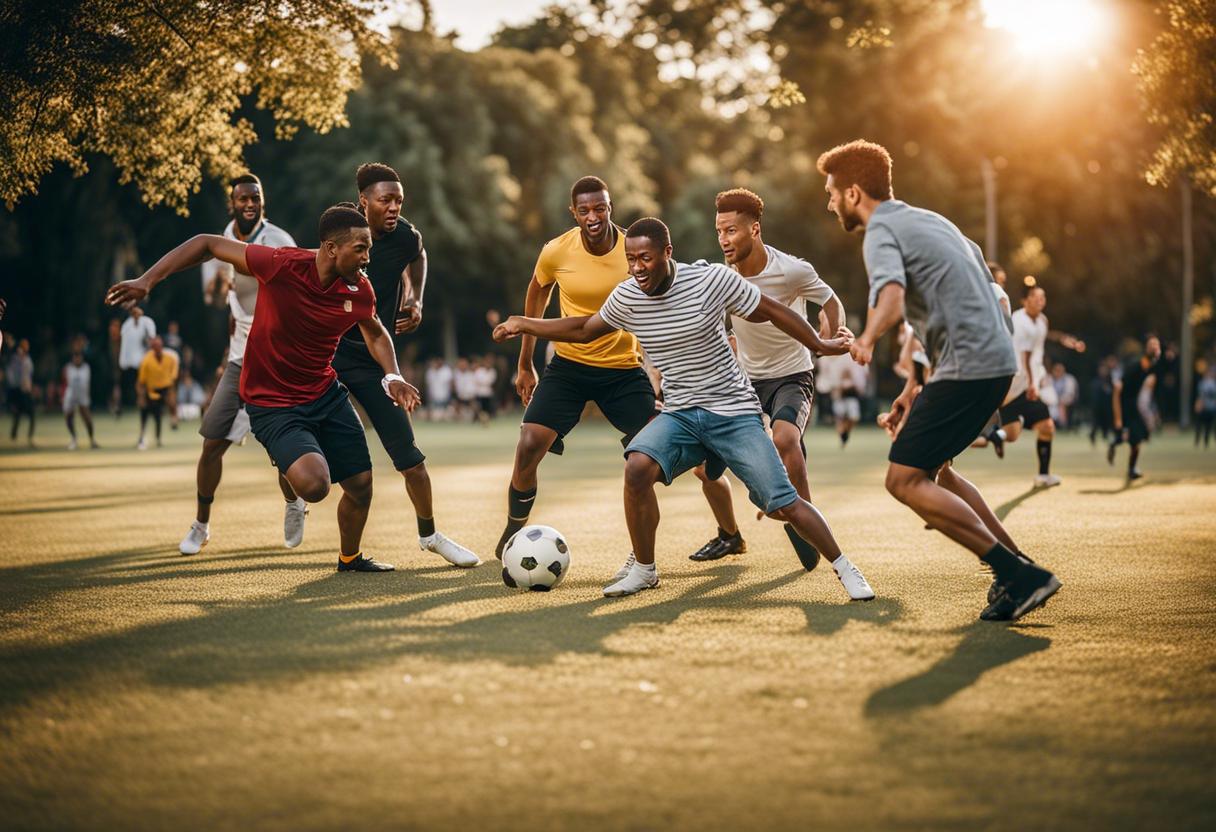The subject of men’s involvement in sports is seldom broached. This isn’t to say we’re discussing the chaps turning out for their local teams in Croke Park or donning the green jersey for Ireland – those receive ample coverage, unlike their women equivalents. Instead, we’re referring to the males you witness in your everyday existence: sons, siblings, fathers, uncles, granddads, and pals.
Men’s engagement in sports is higher compared to women, however, it started to decline roughly ten years ago. In 2011, the Irish Sports Monitor (ISM) survey by Sport Ireland reported that 51% of men were playing sports weekly. Yet, by 2017, this number had slipped to 45% and after a slight ascendance in 2019, fell even deeper during the pandemic hitting a record low of 43% in 2021. Moreover, this slump was mainly experienced among younger men aged 18-34.
On the flip side, despite being lower than men’s, women’s sports participation rates are on an upswing, marking one of Ireland’s triumphant tales. In 2023, ISM, the most comprehensive and longest standing study in Ireland on sports and physical activity, unveiled a robust post-pandemic resurgence in sports engagement rates for both genders. Men’s sports participation recovered four points, compensating for a large fraction of the past decade’s declines to reach 49%.
The participation rate of men in sports is rebounding. Although it hasn’t regained its peak level from ten years ago, it’s a drastic improvement compared to the lows witnessed during and even prior to the pandemic.
In recent times, men’s participation in both individual and team games like swimming and football, has seen considerable growth, increasing from 4% in 2021 to 7% in 2023. Similar advancements were also observed in sports like rugby, running, Gaelic football, tennis, hurling, and golf.
“Men’s Health Week, taking place from the 10th to the 16th of June, serves as an opportune moment to consider the profound impact of sport and physical activity on national health. Not only does it benefit the body, but it also nourishes the mind, spirit and community interactions. It presents a platform for people to engage in social gatherings, exercise and relaxation, occasionally contest, and consistently have an enjoyable time.
The primary obstacle preventing men from participating in sports, according to the ISM series, is the challenge of juggling work commitments. Amidst a society that seems to operate at an increasing pace of productivity, it’s crucial for both employers and employees to set aside enough time for a balanced lifestyle. This time should incorporate opportunities for participation in sports and physical activities.
The national regulations for physical activity suggest a minimum of 2½ hours of exercise weekly to reap the physical and mental health advantages of being active. This creates a win-win scenario, as individuals conforming to these guidelines demonstrate more productivity at work and register fewer absences due to health reasons.
The second common impediment to sports engagement mentioned by men is injury, and this is an area where sport can play a particularly critical role, especially amongst younger men.
Sports organisations and clubs have a responsibility to provide safe environments for their participants, prioritising health, fitness, personal development and social interactions while mitigating the risk of injuries. The safe return to sport should be at the forefront in instances where injuries do occur.
During Men’s Health Week, Sport Ireland urges men from all walks of life in Ireland, regardless of age, capability or background, to engage in physical activity. There is a suitable sporting activity for everyone, irrespective of their size, speed or injury status. Whether it’s participating in a game of football, hill walking, racket play, jogging, biking, swimming or a leisurely walk, an array of sports clubs exist all across Ireland, overseen by friendly, welcoming communities.
The campaign, Get Ireland Active, intends to assist in managing your personal journey towards physical activity. It highlights an array of trails, clubs, facilities and public spaces scattered across the nation. Men on the Move is another accessible resource, a community-led, 12-week physical activity regime for inactive adult men, facilitated by Local Sports Partnerships.
Steer clear of becoming another statistic, set aside time for an active lifestyle and embrace the incredible experiences that sports can provide.
– Benny Cullen, Director of Research and Innovation at Sport Ireland”

